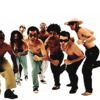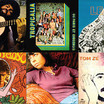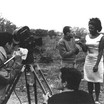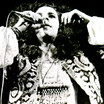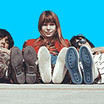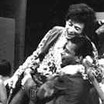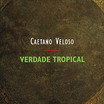Identifisignificados
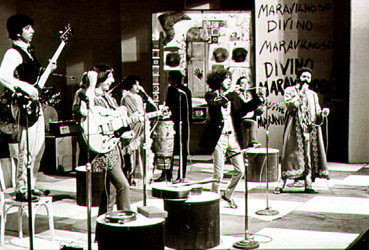
movement
Tropicalism was a movement of rupture that shook Brazilian popular music and culture between 1967 and 1968. Its participants formed a large collective, whose stars were the singer-songwriters Caetano Veloso and Gilberto Gil, along with the singer Gal Costa and the singer-songwriter Tom Zé, rock band the Mutantes and arranger Rogério Duprat. Singer Nara Leão and lyricists José Carlos Capinan and Torquato Neto completed the group, which also included the graphic artist, songwriter and poet Rogério Duarte as one of its principal intellectual mentors.
The Tropicalists took a historic step forward in the Brazilian music scene. Brazilian music post-Bossa Nova and the definition of “musical quality” in the country were increasingly dominated by the traditional or nationalist positions of movements linked to the left. Against these trends, the Bahian collective and its collaborators aimed at universalizing the language of Brazilian Popular Music (MPB), incorporating elements from world youth culture, such as rock, psychedelia and the electric guitar. At the same time, they merged electricity with information from the erudite avant-garde, by means of the innovative arrangements of maestros such as Rogério Duprat, Júlio Medaglia and Damiano Cozzela. By uniting the popular and pop with esthetic experimentalism, Tropicalist ideas came to be the driving force behind the modernization of not only music, but the country’s national culture.
“eu organizo o movimento. eu oriento o carnaval”
Caetano Veloso

Following the best traditions of the great composers of Bossa Nova and incorporating new information and references from its time, Tropicalism radically renewed musical lyrics. Lyricists and poets, Torquato Neto and Capinan wrote songs with Gilberto Gil and Caetano Veloso, works whose complexity and quality influenced various generations. Dialogs with literary works such
as those of Oswald de Andrade and the Concretist poets raised some Tropicalist compositions to the status of poetry. Their songs formed a critical and complex picture of the country – a conjunction of the archaic Brazil of tradition and the modern Brazil of mass culture, and even a futurist Brazil, with astronauts and flying saucers. They made the repertoire of our popular music more sophisticated, incorporating in commercial records procedures and subject matter until then only associated with the conceptual avant-garde.
Syncretistic and innovative, open and all-inclusive, Tropicalism mixed rock and bossa nova, samba, rumba, bolero and baião (a form of music from Brazil’s Northeast). Its presence broke the rigid barriers that remained in the country: pop vs. folklore, high culture vs. mass culture, tradition vs. avant-garde. This strategic rupture deepened contact with popular forms, at the same time as it assumed attitudes that were experimental for the time.
Classic records were produced, such as the collective work Tropicália or Panis et Circensis and the first records of Caetano Veloso and Gilberto Gil. While Caetano went into the studio with arrangers Júlio Medaglia and Damiano Cozzela, Gil recorded his LP with arrangements by

Rogério Duprat and the band Mutantes. Various classics were recorded on these LPs, such as the manifesto-songs “Tropicália” (Caetano) and “Geléia Geral” (Gil and Torquato). Television was another fundamental medium for the group’s activities – especially the popular music festivals of the time. The eruption of the movement could be heard in the noisy presentations, in the electric arrangements, from the “marcha” Carnival rhythm of “Alegria, alegria” (“Joy, joy”) by Caetano, to the capoeira chant of “Domingo no parque” (“Sunday in the park”) by Gilberto Gil, in TV Record’s Third Festival of MPB, in 1967.
With its irreverence, Tropicália transformed the reigning criteria of taste, not only in music and politics, but also in morals and behavior, the body, sex and clothing. The hippie counterculture was assimilated, with the adoption of long curly hair and the wearing of stridently colorful clothes.
The movement, libertarian par excellence, lasted for little more than a year and ended up being repressed by the military government. Its end began with the imprisonment of Gil and Caetano, in December, 1968. The culture of the country, however, had already been changed forever by the discovery of modernity and the tropics.









